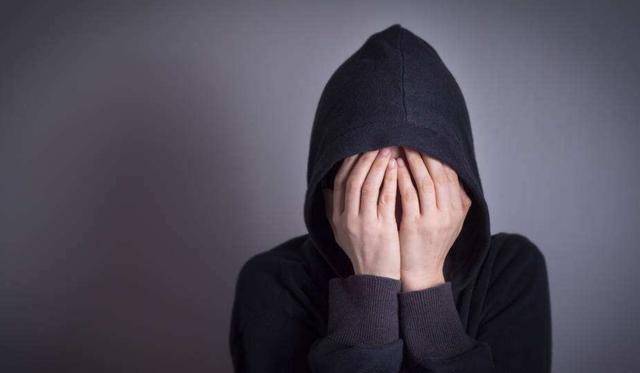“You’re just a child, how could you be depressed?”
“That’s too exaggerated, I’m also tired every day, why don’t I have depression?”
This is a common misunderstanding of people towards depression patients. In a casual tone, depression is often labeled as “affected,” “unhappy,” “too sensitive,” “too weak,” and some even use it as material for jokes.
Whether it’s family or friends, many find it hard to understand the true nature of depression. Some think that depression is just a temporary feeling of sadness that can gradually recover.
However, depression is not simply an emotional issue but a serious mental illness. In addition to long-term feelings of low mood, depression is also accompanied by symptoms such as insomnia, decreased memory, slowed thinking, reduced speech and movement, loss of interest in life, which seriously impact the patient’s normal life.
On a global scale, over 300 million people are suffering from depression, and it is anticipated that in the next decade, depression will become the leading cause of the global disease burden. In China, the proportion of depression patients has exceeded 3%, reaching around 42 million people, and is showing an increasing trend year by year. Compared to other common diseases, the incidence of depression is not low. However, due to its hidden symptoms, the identification rate of depression in China is only 30%, and the medical treatment rate is even lower, less than 10%.
As a result, many people are unaware that they may be suffering from depression, or they may not consider depression as a serious illness, thus failing to actively seek treatment.
People with depression often say these 5 statements frequently, don’t take them as jokes
Depression is often accompanied by psychological and physical symptoms, but outsiders find it hard to notice. By carefully observing the people around us, we may realize that if someone frequently says the following statements, they might have a higher tendency towards depression and need our care and love.
“I ache all over, it’s uncomfortable”
The pain caused by depression often manifests as chronic pain, including back pain, headaches, lower back pain, stomach pain, etc. This kind of pain is persistent and the location of pain constantly changes, making it difficult to detect through routine examinations.
“I want to sleep, but I can’t fall asleep”
Depression patients often face severe sleep problems, feeling extremely tired but unable to fall asleep. Statistics show that around 70-80% of depression patients have sleep disorders, mainly characterized by early awakening and difficulty falling asleep.
“I don’t want to live, life is meaningless”
Depression patients lose their motivation towards life, feeling that life is too tiring and having no interest in anything. They can’t experience joy, lose their enthusiasm for life, even towards things they once enjoyed, they become indifferent, feeling life is meaningless.
“I’m not interested, leave me alone”
People with depression often dislike socializing, preferring to spend a lot of time alone. In extreme cases, they may not leave the house for months, avoid interacting with others, shutting themselves off from the world.
“I’m useless, it’s all my fault”
Depression patients develop a sense of “worthlessness,” feeling they have no value, attributing all faults to themselves, feeling indebted to everyone, believing they are not worthy of love. Regardless of what happens, they feel upset, regretful, and remorseful over minor incidents.
What other methods are there besides medication for depression?
When facing depression, it’s crucial to acknowledge its seriousness and actively seek treatment. According to China’s clinical treatment guidelines for depressive disorders, personalized treatment is particularly important. Apart from relying on antidepressant medication, patients can also address the issue from various aspects such as psychological, music, exercise, and diet.
1. Psychotherapy
Depression is closely related to individual will, hence psychological therapy for patients is crucial. By identifying and correcting erroneous thought patterns, relieving emotional barriers, we can better assist patients in coping with depression.
2. Music therapy
Extensive research indicates that music has a regulating effect on multiple physiological systems, including respiration, circulation, and the endocrine system. Music helps adjust the physical and mental traumas of depression patients, reduce respiratory resistance, enhance attention, improve emotions, and serve as a mental outlet. It’s worth noting that music therapy should be selected based on individual differences for optimal effectiveness.
3. Exercise therapy
Studies have found that adding 50 minutes of exercise per week can reduce the risk of depression by 50%. Exercise helps reduce the secretion of stress hormones, stimulates the brain to release dopamine, generating a sense of pleasure. Additionally, exercise enhances brain function, boosts self-confidence. For depression patients, aerobic exercises like walking and jogging have positive effects on improving depressive moods.
4. Dietary therapy
Research indicates that gut microbiota have certain effects on central nervous system chemistry and behavior, particularly related to stress-related diseases like depression. The Mediterranean diet structure can enhance gut microbiota diversity, easing depressive symptoms. The Mediterranean diet primarily includes vegetables, whole grains, fish, and olive oil. Furthermore, consuming some anti-depressive foods in moderation such as mushrooms, avocados, onions, tomatoes, apples, etc., can improve mental health and help manage depression.
P.S.: Of course, medication therapy is also indispensable. Generally, the course of a depressive episode lasts about 6-13 months. With medication treatment, this duration can be shortened to around 3 months, and the earlier the treatment, the better the outcome.
Self-assess, do you have a tendency towards depression?
As life’s pace quickens and pressures increase, we may unconsciously exhibit signs of depression. To care for your mental health, you can self-assess whether there are signs of depression by using the following questionnaire.
In the questions below, choose the answers relevant to you in the past two weeks. 0, 1, 2, 3 represent: 0 = Not at all; 1 = Several days; 2 = Half of the days; 3 = Almost every day.
Based on the selected answers, scoring: 0 indicates no depression, 1 indicates mild depression, 10-14 points for moderate depression, 15-19 points for moderately severe depression, 20-27 points for severe depression.


